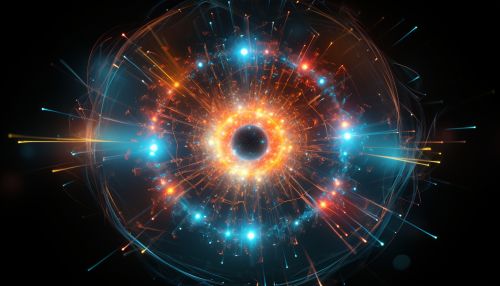Boson
Introduction
A boson is a type of particle that follows Bose–Einstein statistics. Bosons make up one of the two basic classes of particles, the other being fermions. The name 'boson' was coined by Paul Dirac to commemorate the contribution of the Indian physicist Satyendra Nath Bose in developing, with Einstein, Bose–Einstein statistics—statistics of particles that obey Bose–Einstein statistics.


Properties
Bosons may be either elementary, like photons, or composite, like mesons. Bosons are characterized by their behavior under gauge transformations, which, loosely speaking, can be viewed as 'angle changes' in the underlying spacetime. This behavior is characterized by the quantum number known as the spin. Bosons with integer spin (0, 1, 2, etc.) are known as integer or scalar bosons, while those with half-integer spin (1/2, 3/2, etc.) are known as fermions.
Types of Bosons
There are two main types of bosons: gauge bosons and scalar bosons. Gauge bosons include photons, which mediate the electromagnetic force; W and Z bosons, which mediate the weak force; and gluons, which mediate the strong force. Scalar bosons have a spin of 0 and include the Higgs boson, which was discovered at the Large Hadron Collider in 2012.
Gauge Bosons
Gauge bosons are force carrier particles. They mediate the fundamental forces of physics. These include the electromagnetic force, the weak force, and the strong force. The gravitational force is also believed to be mediated by a gauge boson, known as the graviton, although this has not yet been discovered.
Scalar Bosons
Scalar bosons are particles with spin 0. The most famous of these is the Higgs boson, named after physicist Peter Higgs. The Higgs boson is associated with the Higgs field, a field of energy that exists throughout the universe. This field is responsible for giving other particles their mass.
Bosons and Quantum Mechanics
In quantum mechanics, bosons are particles that obey Bose-Einstein statistics. This means that there is no restriction on the number of bosons that can occupy the same quantum state. This property is in contrast to fermions, which obey the Pauli Exclusion Principle and cannot occupy the same quantum state.
